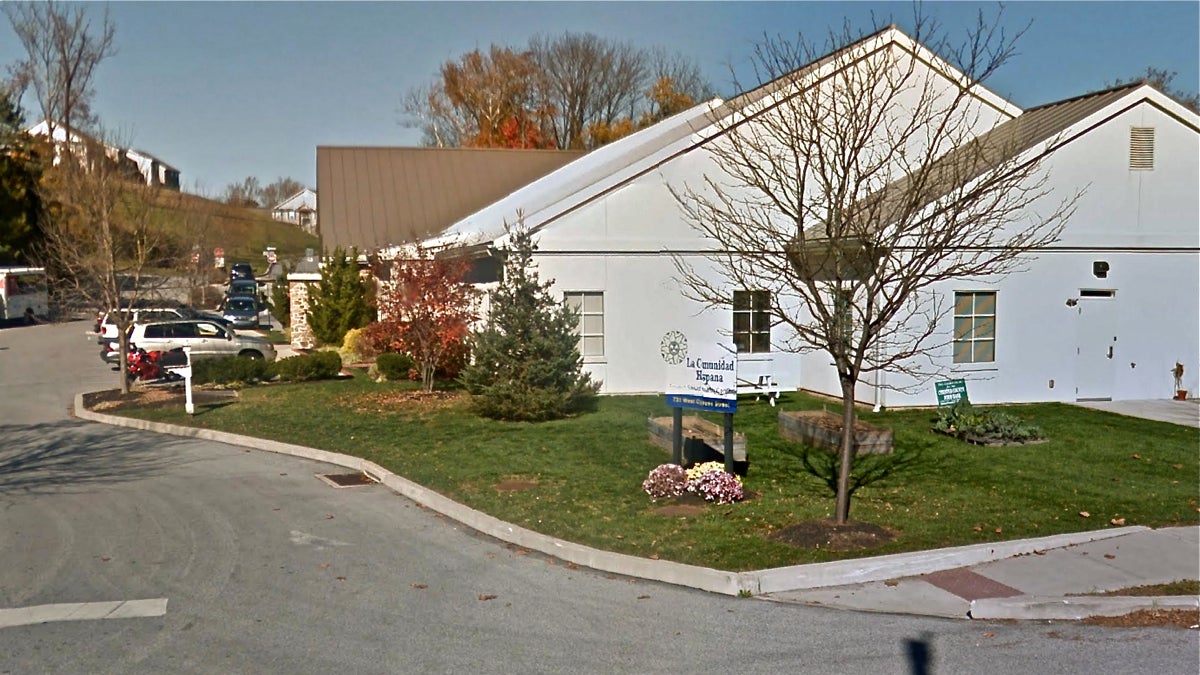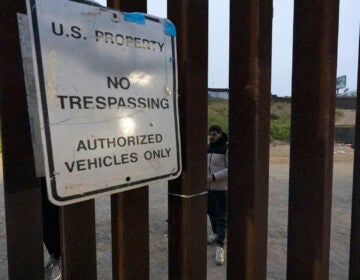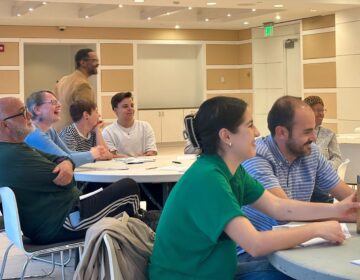Chesco unauthorized immigrants told to make a family plan in case of deportation
Listen
La Comuinidad Hispana in Kennett Square, Pennsylvania, hosted an information session for undocumented immigrants, many of them agricultural workers. (Image via Google Maps)
Latinos living in Pennsylvania’s rural southern Chester County packed a recent community meeting in Kennett Square to discuss their rights — and their worries — under President Donald Trump’s immigration policy changes.
Hosted by La Comunidad Hispana, a multiservice community health center in Kennett Square, the gathering brought together immigration lawyers, social workers and representatives from the Mexican consulate to answer a range of questions posted by immigrants — unauthorized and legal — and their supporters.
According to the Pew Research Center’s analysis of census data, in 2014 Chester County was home to 36,251 Latinos, which includes both native and foreign-born people. Chester County is just west of Montgomery and Delaware counties in Southeastern Pennsylvania.
More isolated and visible than those in large cities, rural immigrant communities like that in Chester County have some unique concerns.
Over the course of the more than hour-long meeting, participants raised several questions about what would happen if they are pulled over while driving by local police.
“I am undocumented and work on a mushroom farm,” said one attendee, who drives to and from the farm without a license. Participants submitted questions on notecards, which LCH staff members read aloud, to maintain anonymity. “I have been stopped before for running a red light. The officer just gave me a ticket. What happens now, under the new administration?”
Driving without a license is a summary, or minor, criminal offense in Pennsylvania, usually resulting in a $200 fine. On a first offense, it does not lead to an arrest.
“We all know how hard it is to get around this area without driving,” said LCH staff attorney John Winicov, acknowledging that most people living in the area don’t have another option. At the same time, Winicov stressed that driving under the influence or, in some cases, causing an accident are more serious crimes and may raise a person’s priority level in the eyes of immigration agents.
Lawyers also faced a wide-range barrage of practical questions related to immigration enforcement and the law:
Can you take your U.S. citizen children to Mexico if their father is estranged and lives in another state?
Will people ask my kids’ immigration status at school?
What if ICE comes looking for someone who used to live at my address?
While the focus was largely on legal and logistical issues, such as whether to grant a friend or relative power of attorney for your children in the event you are deported, some attendees raised concerns over the psychological toll Trump’s actions on immigration are having on their families.
On one notecard, one mother wrote that her 9-year-old her daughter complains of stomach pains and refuses to go to school.
“She is concerned that her father and I will be deported and she will come home and no one will be there. What can I tell her? How can I explain what is happening?” the note continued.
Members of the panel urged honesty, and getting the right information about your particular legal status to your family.
That advice underpins all of the night’s questions and answers, said La Comunidad Hispana’s executive director Alisa Jones.
“Absolutely No. 1 is people are going to start making a plan (of what to do if they are arrested),” she said. “They’re afraid, they’re stressed, and they don’t know where to start. So, now they do.”
In addition to unauthorized immigrants, permanent legal residents from Mexico, as well as representatives from local churches and area mushroom farms were present. Some raised questions about how to support the area’s unauthorized community.
After standing for more than an hour in some cases, participants lined up to speak individually with the consulate representatives and lawyers after the panel wrapped up.
Immigration lawyers present said they are swamped with requests for information sessions and private consultations regarding individual immigration cases.
“Unfortunately, I can’t duplicate myself so I don’t have any appointments for more than a month,” said attorney Lindsey Sweet.
Correction: This article has been updated to more accurately reflect the penalty for driving without a license.
WHYY is your source for fact-based, in-depth journalism and information. As a nonprofit organization, we rely on financial support from readers like you. Please give today.




